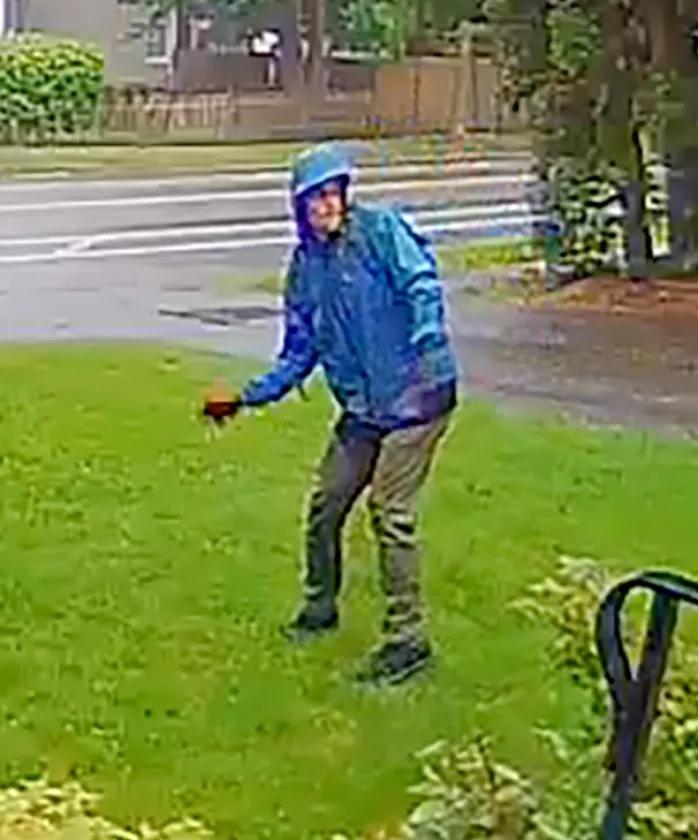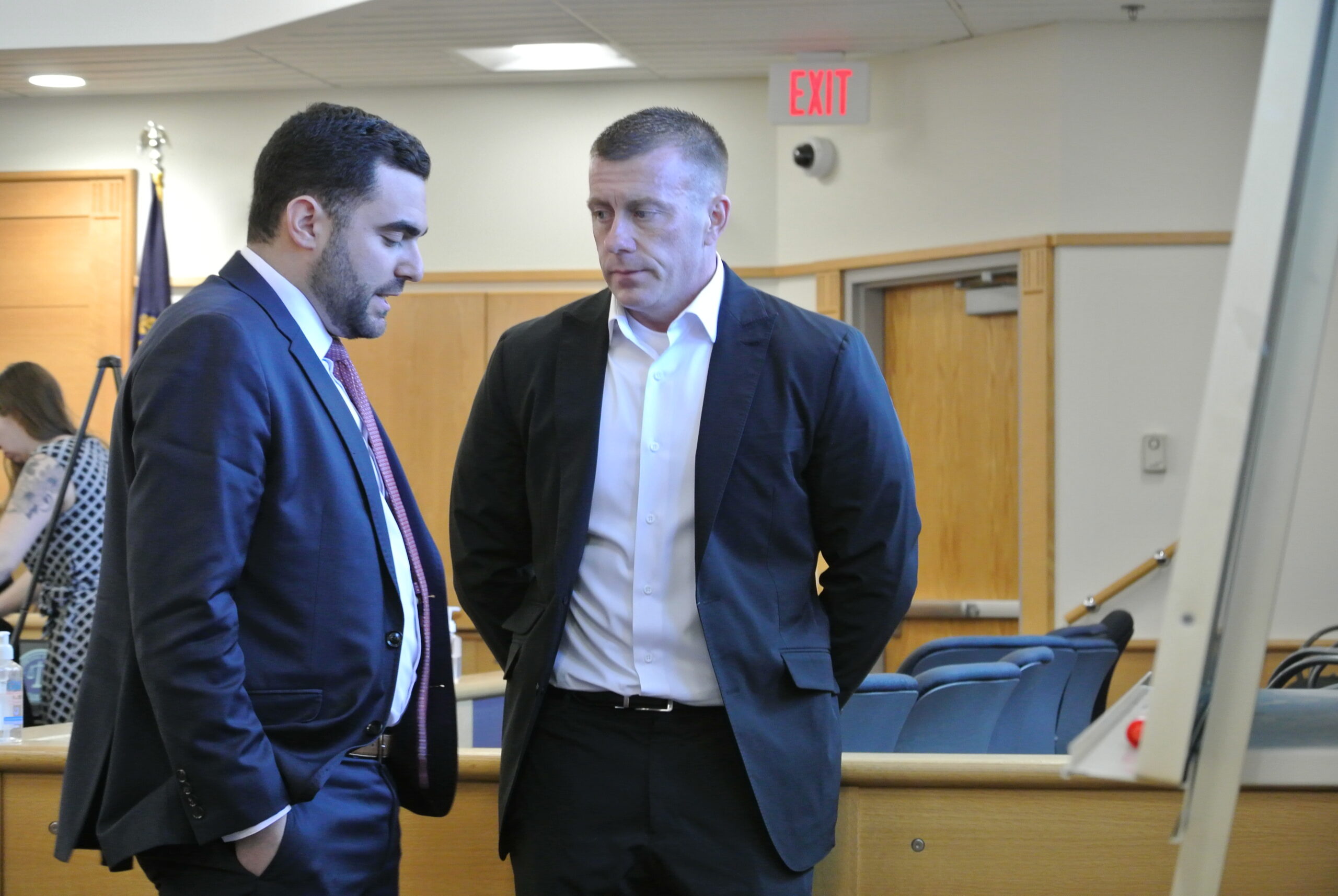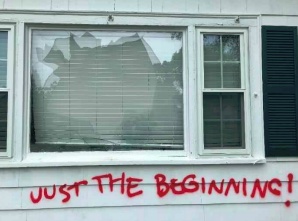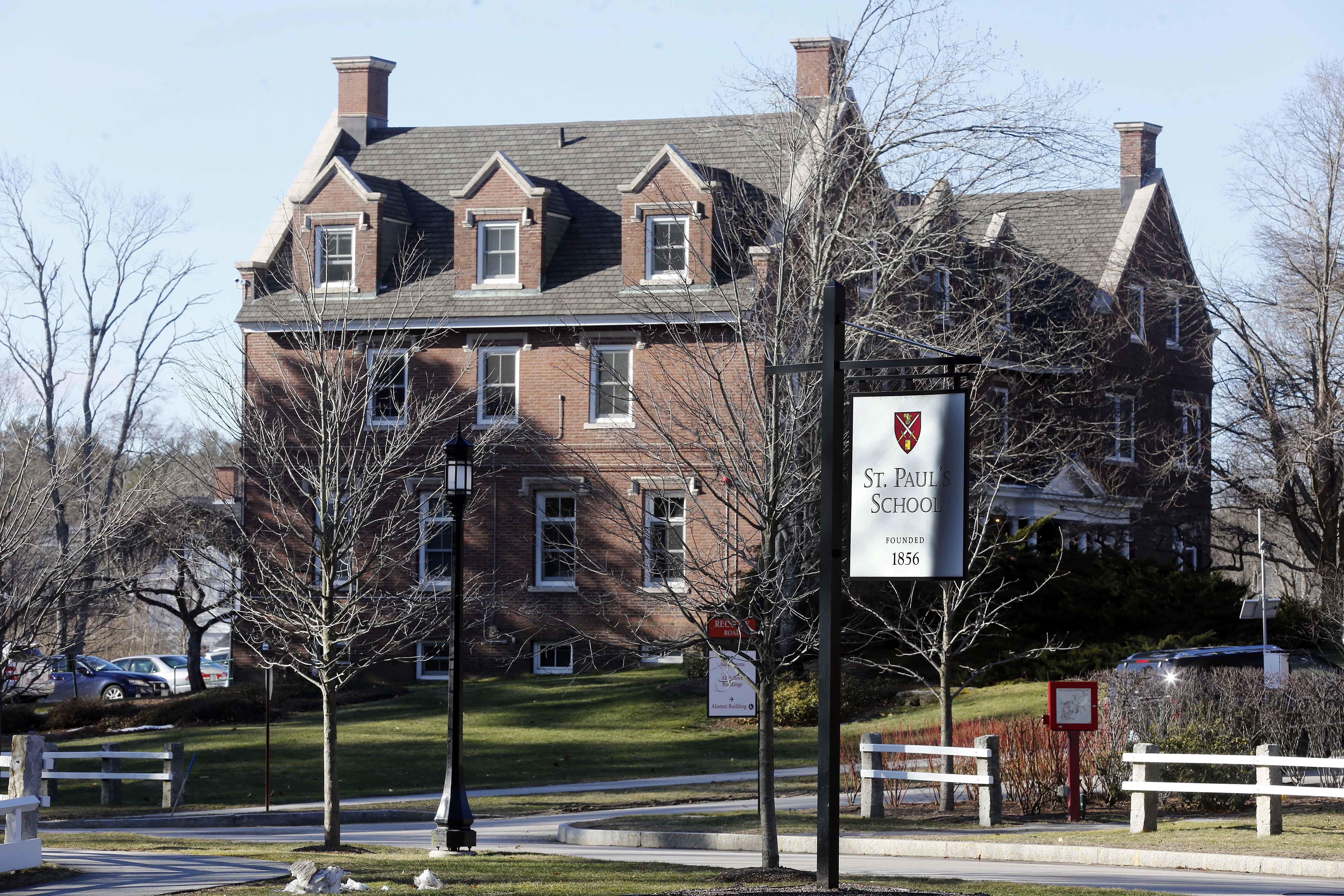Claremont School Board Blames NHJournal for Public Outcry Over Stalking Teacher Case

Fired after she was arrested for stalking a student, former Claremont Middle School teacher Erin Mullen reportedly told a judge this week she’s been adhering to the court order barring her from contacting the child.
Meanwhile, the Claremont School Board blamed NHJournal for complaints from parents and taxpayers that the district mishandled the incident by allowing the accused teacher to remain on the job even as she was under investigation.
Mullen, 38, was in Claremont District Court Wednesday for a status hearing on the charge she violated the stalking order. That order, taken out by the 14-year-old boy’s mother, finally forced the Claremont School District to take action against the teacher.
After she was briefly suspended in September, SAU 6 officials knowingly allowed Mullen back into the classroom while she was under criminal investigation for sexual misconduct with the boy. For months, since October, Mullen was teaching middle school as the police investigation was underway.
Mullen was arrested Feb. 5, an hour after she was served with the stalking order when she was spotted talking to the boy. District officials initially claimed they acted swiftly to fire Mullen, but Superintendent Chris Pratt later admitted to NHJournal they had known about the criminal investigation for months.
After days of trying to ignore complaints from the public, the SAU 6 School Board issued a statement last week blaming NHJournal and other outlets for reporting on Mullen and the district’s inaction.
“The Claremont School Board believes that much of the press on the matter and social media posts are inaccurate and falsely betray the Claremont School District as not handling the matter correctly,” the board said in its statement. “On the contrary, the Claremont School Board, in consultation with the legal counsel and the Claremont chief of police, is confident that the district responded appropriately.”
The board’s statement claims its own internal investigation into how Mullen was handled clears district officials of mismanagement.
Anthony DiPadova, attorney for the mother of the boy Mullen is accused of stalking, told NHJournal he’s not sure how the board can claim the district acted appropriately.
“I respectfully disagree that they acted appropriately. They knew there was an inappropriate relationship at least a year ago,” DiPadova said.
DiPadova said Mullen and the student were using school systems to communicate late at night in a manner that concerned administrators, and that Mullen was cautioned about her behavior. But she was never taken out of the classroom until October, and then only for a few weeks.
“I’m not sure how they imagine they acted appropriately,” DiPadova said.
Claremont Police Chief Brent Wilmot told NHJournal police opened a criminal investigation into Mullen in September, and that the district was made aware of that investigation. That investigation is still ongoing, he said. Wilmot said he supports Pratt, who has been dealing with a difficult situation, but would not say if he thinks the board and the district as a whole acted appropriately.
“It’s hard to say they did everything correct without having all the information they had at the time,” Wilmot said.
Mullen is charged with violating the stalking order the mother obtained through court action. DiPadova said the mother had been trying and failing to get the school to stop Mullen for months before she sought the order earlier this month.
Mullen befriended the mother over the summer and started taking the boy on out-of-state trips alone and keeping him overnight. When Mullen kept the boy at her house at the end of last summer, refusing to return him to his mother, the mother went to police. Mullen’s mother told police and others she believes Mullen has engaged in sexual activity with the boy, according to court records.
Mullen was put on leave in October after she violated a family court order to stay away from the boy, but was back in the classroom a few weeks later. When Mullen returned to work from her leave, the district was well aware of the pending criminal investigation.
“I don’t know how somebody being investigated for these types of crimes stays in their job,” DiPadova said.
DiPadova told NHJournal the mother is still considering her legal options, but is waiting to see how the stalking case is resolved. Wilmot said police are currently trying to determine how long the relationship between Mullen and the boy has been going on.











